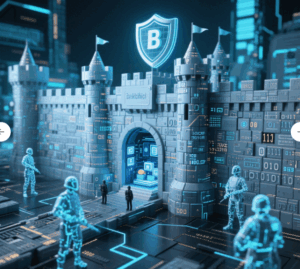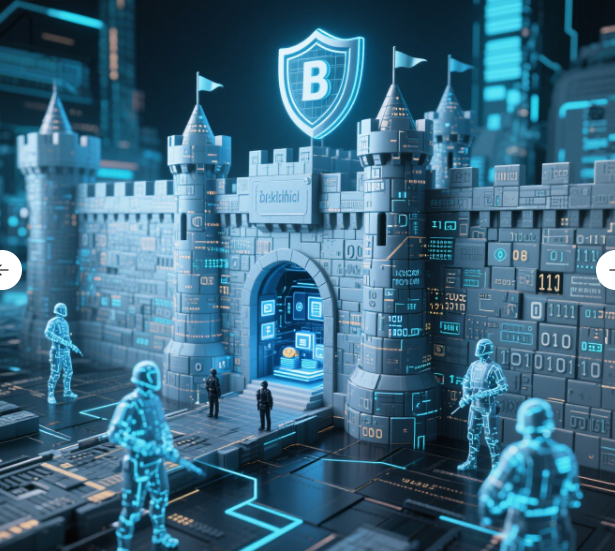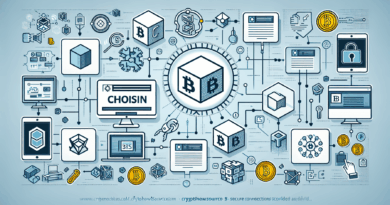What is Blockchain Technology? A Deep Dive into Its Real-World Impact
In the fast-evolving world of digital finance and decentralized systems, blockchain technology stands as a foundational breakthrough—one that continues to shape global industries beyond cryptocurrency. But what is blockchain technology, and why does it matter to individuals, businesses, and governments alike?
This article unpacks the core of blockchain, backed by credible research, real-world applications, and user-focused insights to help you grasp not only what blockchain is—but why it’s essential.
The Core Concept: Trustless, Decentralized, Immutable
At its essence, blockchain is a distributed ledger that records transactions across a network of computers. Each transaction is stored in a “block,” and once a block is verified, it is added to a “chain” in chronological order. This structure ensures immutability—meaning that data, once written, cannot be altered without network consensus.
Unlike traditional databases managed by central authorities, blockchain relies on decentralization, making it nearly tamper-proof and trustless—participants don’t need to know or trust each other to transact securely.
A seminal paper from Satoshi Nakamoto (2008), Bitcoin: A Peer-to-Peer Electronic Cash System, introduced the first practical blockchain use case—Bitcoin. Since then, the technology has evolved dramatically.
Why Users Search for “What Is Blockchain Technology”
User intent behind this search often reveals pain points, including:
-
Misunderstanding how blockchain differs from crypto.
-
Concerns about privacy, data ownership, and security.
-
Curiosity about real-life applications and job market relevance.
-
Confusion over scalability and energy use.
These queries underscore a knowledge gap that blockchain education must bridge. Let’s resolve these challenges point by point.
Beyond Bitcoin: Use Cases That Matter
Blockchain is no longer confined to cryptocurrencies. Today, industries from healthcare to logistics to finance are leveraging it for increased transparency and reduced fraud.
Supply Chain Management
Walmart and IBM have pioneered blockchain-powered food tracking systems, reducing the time to trace produce from 7 days to 2.2 seconds (IBM Food Trust, 2019).
Healthcare
A 2020 study published in Journal of Medical Systems demonstrated how blockchain enhances electronic health record (EHR) integrity and patient data privacy, especially during health crises like COVID-19.
Finance
Decentralized finance (DeFi) platforms use smart contracts—self-executing agreements coded on the blockchain—to offer services like lending, borrowing, and yield farming, cutting out traditional banks and intermediaries.

Blockchain ≠ Cryptocurrency
Many users conflate blockchain with Bitcoin or Ethereum. While crypto assets operate on blockchains, the technology itself is neutral and versatile.
For instance, Hyperledger Fabric, a permissioned blockchain framework hosted by the Linux Foundation, powers enterprise-grade applications without requiring a native cryptocurrency.
Addressing Scalability and Sustainability Concerns
One of the top user concerns is blockchain’s environmental impact—especially with proof-of-work (PoW) systems like Bitcoin.
According to Cambridge Centre for Alternative Finance (2023), Bitcoin’s annualized energy consumption reached 95 TWh, comparable to a small country.
In response, newer consensus mechanisms like proof-of-stake (PoS)—used by Ethereum since The Merge in 2022—have reduced energy consumption by over 99.95% (Ethereum Foundation).
The Road Ahead: Interoperability, Regulation, and AI Integration
Looking forward, blockchain’s true potential lies in convergence:
-
Interoperability will enable blockchains to communicate seamlessly.
-
Regulatory clarity is evolving; in the U.S., the SEC and CFTC continue shaping frameworks.
-
Blockchain + AI can create autonomous economic agents, redefining how value is exchanged.
Deloitte’s 2024 Global Blockchain Survey shows that 78% of executives believe blockchain will form part of their future digital strategy.
Final Thoughts
Blockchain is not a passing trend—it’s a technological shift. Whether you’re a developer, investor, or simply curious, understanding the layers of what blockchain technology is gives you an edge in a digitized economy.
At CryptoNewsSources, we continue to track and analyze blockchain innovations so you stay informed, empowered, and ahead of the curve.
Author Bio
Ethan Choi is a financial technology analyst with over a decade of experience in decentralized systems, digital identity, and token economics. He holds a Master’s in Information Systems from the University of Toronto and regularly contributes to peer-reviewed journals on emerging financial technologies.




